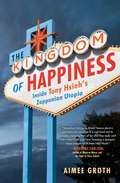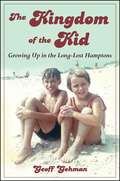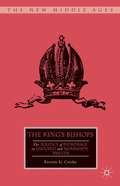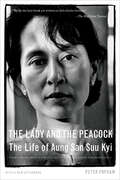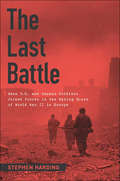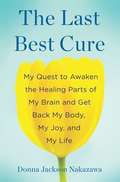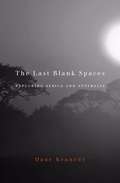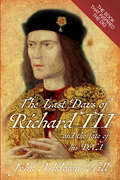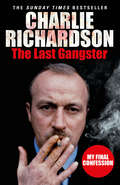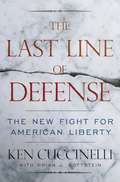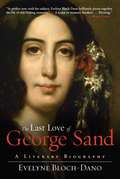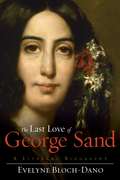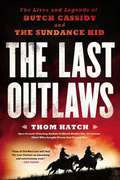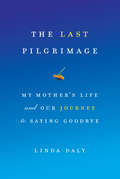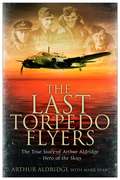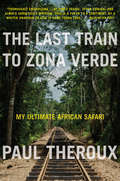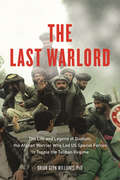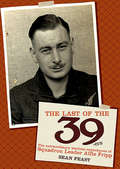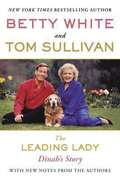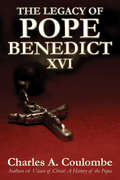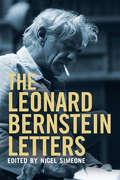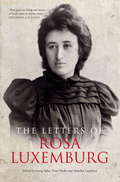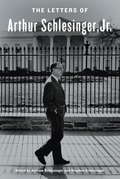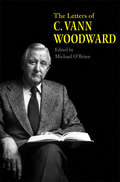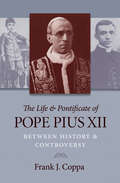- Table View
- List View
The Kingdom of Happiness: Inside Tony Hsieh's Zapponian Utopia
by Aimee GrothFearless gonzo journalism—an insider’s look at the enigmatic and successful CEO of Zappos, Tony Hsieh, and his quest to create his own version of utopia in the center of Las Vegas.In 2010 Tony Hsieh was introduced to many as a visionary modern business leader. Under Hsieh’s leadership, Zappos became the world’s largest online shoe company by championing satisfied customers and a valued workforce. After his company was purchased by Amazon, even as he continued as its CEO, Hsieh engaged his energies and considerable fortune toward a much larger goal: building a new and more socially conscious Silicon Valley in the heart of downtown Las Vegas, all within his five-year plan. Hsieh challenged business and technology journalist Aimee Groth to uproot her life and participate in his social engineering experiment. Beginning with couch surfing, moving to a Downtown Project crash pad, and then living in Zappos corporate housing above the Gold Spike bar, Groth had a front-row view of Hsieh’s efforts to build his ideal society. With interviews from insiders on all ends of the Zappos spectrum—like the “broken dolls” who gravitate toward Hsieh’s almost cultlike personality and make up some of his inner circle, to the Zapponians who live and work on campus, to players in the top echelon of Silicon Valley—Groth offers a unique view of a world few people know much about, and sheds a new light on this complex, eccentric man. The Kingdom of Happiness is the story of one man’s quest to create his own nirvana in the desert based on his exacting design and experimentation with lessons he’s gleaned not only from the incredible success of Zappos, but also from rave culture and Burning Man. Is it the business model of the future or a cautionary tale of hubris?
The Kingdom of the Kid: Growing Up in the Long-Lost Hamptons (Excelsior Editions)
by Geoff GehmanThe Kingdom of the Kid is a memorable portrait of an indelible childhood on Long Island's South Fork from 1967 to 1972, when the Hamptons were still a middle-class paradise. In six short years, journalist Geoff Gehman was changed forever by a host of remarkable characters, including Carl Yastrzemski, his first baseball hero; Truman Capote, his first literary role model; race car champion Mark Donohue, who conquered a wicked track nicknamed "The Bridge"; Henry Austin "Austie" Clark Jr., fabled proprietor of a candy store of vintage vehicles; and Norman Jaffe, the notorious architect who designed a house seemingly built by masons from outer space.Gehman's childhood kingdom was ruled by his father, a boozing, schmoozing social bulldozer, who taught his son how to pitch, how to sing barbershop harmony, and how to mix with potato farmers and power brokers. Then, burdened by manic depression and bad investments, he abruptly ended his son's reign on the East End by selling the family house in Wainscott without his wife's permission.The Kingdom of the Kid is not just another baby-boomer coming-of-age memoir about baseball, beaches, drive-in movies, rock 'n' roll, fast cars, faster women, alcoholism, mental illness, divorce, suicide, and redemption. It's a pilgrimage to a special place at a special time that taught a kid how to be special. It's for anyone who has lived in the Hamptons or has wondered about living in the Hamptons, anyone who remembers the thrill of riding shotgun on the tailgate of a Ford LTD station wagon, anyone hungry for a juicy slice of Don McLean's "American Pie."
The King’s Bishops
by Everett U. CrosbyThis is the first detailed comparative study of patronage as an instrument of power in the relations between kings and bishops in England and Normandy after the Conquest. Esteemed medievalist Everett U. Crosby considers new perspectives of medieval state-building and the vexed relations between secular and ecclesiastical authority.
The Lady and the Peacock: The Life of Aung San Suu Kyi
by Peter PophamNobel Peace Prize Laureate Aung San Suu Kyi—known to the world as an icon for democracy and nonviolent dissent in oppressed Burma, and to her followers as simply “The Lady”—has recently returned to international headlines. Now, this major new biography offers essential reading at a moment when Burma, after decades of stagnation, is once again in flux.Suu Kyi’s remarkable life begins with that of her father, Aung San. The architect of Burma’s independence, he was assassinated when she was only two. Suu Kyi grew up in India (where her mother served as ambassador), studied at Oxford, and worked for three years at the UN in New York. In 1972, she married Michael Aris, a British scholar. They had two sons, and for several years she lived as a self-described “housewife”—but she never forgot that she was the daughter of Burma’s national hero.In April 1988, Suu Kyi returned to Burma to nurse her sick mother. Within six months, she was leading the largest popular revolt in the country’s history. She was put under house arrest by the regime, but her party won a landslide victory in the 1990 elections, which the regime refused to recognize. In 1991, still under arrest, she received the Nobel Peace Prize. Altogether, she has spent over fifteen years in detention and narrowly escaped assassination twice.Peter Popham distills five years of research—including covert trips to Burma, meetings with Suu Kyi and her friends and family, and extracts from the unpublished diaries of her co-campaigner and former confidante Ma Thanegi—into this vivid portrait of Aung San Suu Kyi, illuminating her public successes and private sorrows, her intellect and enduring sense of humor, her commitment to peaceful revolution, and the extreme price she has paid for it.
The Last Battle: When U.S. and German Soldiers Joined Forces in the Waning Hours of World War II in Europe
by Stephen HardingThe true story of US & German soldiers fighting side by side in the final days of WW II
The Last Best Cure
by Donna Jackson NakazawaOne day Donna Jackson Nakazawa found herself lying on the floor to recover from climbing the stairs. That's when it hit her. She was managing the symptoms of the autoimmune disorders that had plagued her for a decade, but she had lost her joy. As a science journalist, she was curious to know what mind-body strategies might help her. As a wife and mother she was determined to get her life back. Over the course of one year, Nakazawa researches and tests a variety of therapies including meditation, yoga, and acupuncture to find out what works. But the discovery of a little-known branch of research into Adverse Childhood Experiences causes her to have an epiphany about her illness that not only stuns her-it turns her life around. Perfect for readers of Gretchen Rubin's The Happiness Project, Nakazawa shares her unexpected discoveries, amazing improvements, and shows listeners how they too can find their own last best cure.
The Last Blank Spaces
by Dane KennedyThe challenge of opening Africa and Australia to British imperial influence fell to a coterie of proto-professional explorers who sought knowledge, adventure, and fame but often experienced confusion, fear, and failure. The Last Blank Spaces follows the arc of these explorations, from idea to practice, intention to outcome, myth to reality.
The Last Days of Richard III and the fate of his DNA: The Book that Inspired the Dig
by John Ashdown-HillThe Last Days of Richard III contains a new and uniquely detailed exploration of Richard’s last 150 days. By deliberately avoiding the hindsight knowledge that he will lose the Battle of Bosworth Field, we discover a new Richard: no passive victim, awaiting defeat and death, but a king actively pursuing his own agenda.It also re-examines the aftermath of Bosworth: the treatment of Richard’s body; his burial; and the construction of his tomb. And there is the fascinating story of why, and how, Richard III’s family tree was traced until a relative was found, alive and well, in Canada.Now, with the discovery of Richard’s skeleton at the Greyfrairs Priory in Leicester, England, John Ashdown-Hill explains how his book inspired the dig and completes Richard III’s fascinating story, giving details of how Richard died, and how the DNA link to a living relative of the king allowed the royal body to be identified.
The Last Gangster: My Final Confession
by Charlie RichardsonCharlie Richardson, one of Britain's most notorious gangland bosses, sheds light on his extraordinary life story completed just weeks before his death in September 2012.Notorious Charlie Richardson was the most feared gangster in 1960s London. Boss of the Richardson Gang and rival of the Krays, to cross him would result in brutal repercussions. Famously arrested on the day England won the World Cup in 1966, his trial heard he allegedly used iron bars, bolt cutters and electric shocks on his enemies.The Last Gangster is Richardson’s frank account of his largely untold life story, finished just before his death in September 2012. He shares the truth behind the rumours and tells of his feuds with the Krays for supremacy, undercover missions involving politicians, many lost years banged up in prison and reveals shocking secrets about royalty, phone hacking, bent coppers and the infamous black box.Straight up, shocking and downright gripping, this is the ultimate exposé on this legendary gangster and his extraordinary life.
The Last Line of Defense: The New Fight for American Liberty
by Ken CuccinelliVirginia Attorney General Ken Cuccinelli leads the historic fight against the unprecedented overreach of the federal government. With Obamacare and agencies like the EPA, the FCC, and the National Labor Relations Board attempting to exercise unprecedented control over the American people, the Obama Administration was breaking federal laws, ignoring federal courts, and violating the Constitution to achieve its goals of redistributing wealth, concentrating power in Washington, and rewarding its supporters. Without enough lawmakers in Washington devoted to protecting the rule of law to stop the federal government's liberty-stealing power grab, the battle had to be waged in an unprecedented way: from the states -- just as our Founding Fathers intended. The man who led the charge was Ken Cuccinelli, the first state attorney general to argue in federal court against Obamacare, an unapologetic defender of the Constitution, and a man admirers and detractors alike said "was tea party long before there was a Tea Party." The Last Line of Defense provides a behind-the-scenes account of the myriad of legal battles in which our states were the only instruments of resistance to federal abuses of power. It is a must-read for every patriot.
The Last Love of George Sand: A Literary Biography
by Evelyne Bloch-DanoGeorge Sand is one the most celebrated writers and controversial personalities of nineteenth-century France; she is as famous for her bohemian lifestyle as for her written work. The Last Love of George Sand portrays the writer, political activist, and cultural figure as she starts a new chapter in her ever-surprising life: the mature years with her last lover, the young and talented engraver Alexandre Manceau. A turning point came for George Sand in 1849. After her political involvement in the revolution of 1848, Sand retreated to her country property, Nohant, with her son Maurice and started writing new plays. One day, Maurice introduced her to Alexandre Manceau, a young and shy artist thirteen years her junior. At forty-five, she was at the pinnacle of her career. She had a long history of tumultuous love affairs with famous artists such as Musset, Chopin, and Mérimée, but she had never experienced a peaceful and balanced relationship. With Manceau, Sand discovered that she could be loved, and fall in love herself, without drama. Their relationship would last fifteen years, and prove to be the most prolific period of Sand's life, with fifty books published including the novels Elle et lui, inspired by her relationship with Musset, and Le dernier amour, written just ten days after Manceau died of tuberculosis. Although much has been written about George Sand, most of the previous biographies are focused on her more turbulent times. In The Last Love of George Sand, Evelyne Bloch-Dano looks back on Sand's life from the vantage point of her years with Manceau.
The Last Love of George Sand: A Literary Biography
by Evelyne Bloch-DanoGeorge Sand is one the most celebrated writers and controversial personalities of nineteenth-century France; she is as famous for her bohemian lifestyle as for her written work. The Last Love of George Sand portrays the writer, political activist, and cultural figure as she starts a new chapter in her ever-surprising life: the mature years with her last lover, the young and talented engraver Alexandre Manceau.A turning point came for George Sand in 1849. After her political involvement in the revolution of 1848, Sand retreated to her country property, Nohant, with her son Maurice and started writing new plays. One day, Maurice introduced her to Alexandre Manceau, a young and shy artist thirteen years her junior. At forty-five, she was at the pinnacle of her career. She had a long history of tumultuous love affairs with famous artists such as Musset, Chopin, and Mérimée, but she had never experienced a peaceful and balanced relationship. With Manceau, Sand discovered that she could be loved, and fall in love herself, without drama. Their relationship would last fifteen years, and prove to be the most prolific period of Sand's life, with fifty books published including the novels Elle et lui, inspired by her relationship with Musset, and Le dernier amour, written just ten days after Manceau died of tuberculosis.Although much has been written about George Sand, most of the previous biographies are focused on her more turbulent times. In The Last Love of George Sand, Evelyne Bloch-Dano looks back on Sand's life from the vantage point of her years with Manceau.
The Last Outlaws: The Lives and Legends of Butch Cassidy and the Sundance Kid
by Thom HatchThe Old West was coming to an end. Two legendary outlaws refused to go with it. As leaders of the Wild Bunch, Butch Cassidy and the Sundance Kid executed the most daring bank and train robberies of their day. For several years at the end of the 1890s, the two friends, along with a revolving band of thieves, eluded law enforcement while stealing from the rich bankers and Eastern railroad corporations who exploited Western land...until they rode headlong into the twentieth century. In The Last Outlaws, Thom Hatch brings these memorable characters to life like never before. From their early holdup attempts to that fateful day in Bolivia, Hatch draws on a wealth of fresh research to go beyond the myth and provide a compelling new look at these legends of the Wild West. Includes Photographs
The Last Pilgrimage: My Mother's Life and Our Journey to Saying Goodbye
by Linda DalyLinda Daly had a seemingly charmed life: her mother Nancy was married to the head of Warner Bros, and her parents were one of the most influential and prominent couples in Los Angeles. Even their divorce couldn't test the bond between mother and daughter, and their family grew: her mother married Dick Riordan, mayor of L.A.; her father married songwriter Carole Bayer Sager. The extended family used their combined resources to help a number of cultural and philanthropic concerns across the country until they encountered the one thing they could not overcome: Nancy's diagnosis of stage four pancreatic cancer.So mother and daughter teamed up to begin a search for a miracle cure - a roller-coaster ride through the rigors of western medicine, the surgeries and chemotherapies, and the untested boundaries of alternative medicine. All along Linda stayed by her mother's side, facing the fear of the unknown, as she struggled with both her mother's diagnosis and her own lifelong issues with faith and religion. Out of choices and almost out of time, Linda and her mother put their rocky faith in one last pilgrimage: a visit to a Brazilian faith healer, John of God, during his residence in upstate New York.Fleeing the dubious practices of the faith healer, and with Nancy's time quickly running out, Linda and her siblings embarked on a final road trip home, in a rented, unruly RV, to bring Nancy back to her beloved City of Angles. What Linda learned on their final pilgrimage together would change her forever and speaks to the issues faced by many adult sons and daughters today: how to help those who gave you life face the end of their own.Ultimately, The Last Pilgrimage is Linda's love letter to her mother, proof that the end of life can offer a peaceful and comforting farewell. Nancy's final gift to her daughter was a single moment of serenity that came with the most incredible sensation of being brushed with a thousand feathers. Peace like none other. Linda finally realized that the journey she needed to make was an interior one; that even when life is untidy, it's ever changing patterns can be exciting and fulfilling. That closeness to God, and being a part of something larger than herself, could be found by anyone, even within the confines of an RV.
The Last Torpedo Flyers
by Mark Ryan Arthur AldridgeImagine you are an RAF torpedo pilot in World War Two, sent on missions so dangerous that you're later likened to the Kamikaze. Suicide wasn't a recognised part of the objective for British airmen, yet some pilots felt they had accepted certain death just by climbing into their cockpits. There were times in 1942 when Arthur Aldridge felt like this. At the age of 19, this courageous young man had quit his studies at Oxford to volunteer for the RAF. He flew his Bristol Beaufort like there was no tomorrow - a realistic assumption, after seeing his best friend die in flames at the end of 1941. Aldridge was awarded a DFC (Distinguished Flying Cross) for his bravery on the same strike on a German cargo ship during which he lost a wing tip by flying too close to the deck. He was equally lucky to survive his squadron's chaotic torpedo attack on the giants of Hitler's maritime fleet during the notorious Channel Dash, which saw 40 RAF planes shot down. As 1942 wore on, and the stress became intolerable, Aldridge and his Cockney gunner Bill Carroll held their nerve, and 'Arty' was awarded a Bar to his DFC for sinking two enemy ships off Malta and rescuing a fellow pilot while wounded, as his own Beaufort took four shells. Malta was saved by the skin of its teeth, Rommel denied vital supplies in North Africa, and the course of the war was turned. Aldridge was still only 21 years old. Now both 91, but firm friends as ever, Aldridge and Carroll are two of the last torpedo airmen who deserve their place in history alongside our heroic Spitfire pilots. Their story vividly captures the comradeship that existed between men pushed by war to their very limit.
The Last Train to Zona Verde: My Ultimate African Safari
by Paul TherouxThe acclaimed author of Dark Star Safari journeys across western Africa in this &“thoroughly engrossing [and] at times tragic&” travelogue (Washington Post).Paul Theroux&’s best-selling Dark Star Safari chronicled his epic overland voyage from Cairo to Cape Town, providing an insider&’s look at modern Africa. Now, with The Last Train to Zona Verde, he returns to discover how both he and Africa have changed in the ensuing years. Traveling alone, Theroux sets out from Cape Town, going north through South Africa, Namibia, then into Angola, encountering a world increasingly removed from tourists&’ itineraries and the hopes of postcolonial independence movements. After covering nearly 2,500 arduous miles, Theroux cuts short his journey, a decision he chronicles with unsparing honesty in a chapter titled &“What Am I Doing Here?&” Vivid, witty, and beautifully evocative, The Last Train to Zona Verde is a fitting final African adventure from the writer whose gimlet eye and effortless prose have brought the world to generations of readers. &“If this book is proof, age has not slowed Theroux or encouraged him to rest on his achievements . . . Gutsy, alert to Africa's struggles, its injustices and history.&” — San Francisco Chronicle
The Last Warlord: The Life and Legend of Dostum, the Afghan Warrior Who Led US Special Forces to Topple the Taliban Re
by Brian WilliamsChronicling the spectacular rise to power of General Abdul Rashid Dostum, this is an intimate profile of the one of the most powerful warlords to have dominated Afghanistan in the years since the Soviet withdrawal in the late 1980s. His rise from simple peasant villager to warrior against the repressive policies of the Taliban and Al Qaeda is told by one of the few outsiders to be accepted into Dostum's stronghold in the northern deserts of Afghanistan. Thanks to this unprecedented access, author Brian Glyn Williams was able to conduct lengthy interviews with Dostum and his family, as well as his subcommanders, local chieftains, mullahs, Taliban enemies, prisoners of war, and women's rights activists. What emerges is an intensely personal account of the Mongol warlord, detailing his childhood, motivations, hopes for his country, and conviction that it is time for a new generation of Western-trained technocrats to shape his country's destiny. With the drawing down of U.S. troops in 2014 and Dostum poised to reenter the world stage to fight a resurgent Taliban, this timely analysis provides important historical context to the controversy swirling around Afghanistan's warlord culture and is an essential contribution to the debate on Afghanistan's future.
The Last of the 39-ers: The Extraordinary Wartime Experiences of Squadron Leader Alfie Fripp
by Sean FeastThe story of the RAF pilot and POW shot down in 1939—including his role in the Great Escape from Stalag Luft III—is told in this intimate WWII biography. While on a reconnaissance sortie over Germany in 1939, Royal Air Force Flight Lieutenant Alfie Fripp was shot down by the Luftwaffe and taken prisoner. The longest-serving British prisoner of war, he was also the last of the surviving &“39-ers&” when he died in 2012. His wartime years were spent in numerous camps, including the infamous Stalag Luft III, where he took an active role in the prison break immortalized by the film The Great Escape. Fripp also served during the interwar period and returned to service after being released in 1945. Before he died, Fripp, began working with aviation historian Sean Feast on his memoirs. Feast has now combined copious research with Fripp&’s candid account and personal photographs to produce this lively and authoritative biography.
The Leading Lady
by Tom Sullivan Betty WhiteThe story of a dog, and the extraordinary difference she made in every life she touched. After sixty years in show business, Betty White has earned her reputation as an American icon. She may be a bona fide television pioneer, but throughout Betty's life, her heart has always been with the animals. But one of the most enriching episodes in her career as an animal-rights advocate arrived with actor Tom Sullivan. Blind since birth, Tom was one of Betty's closest friends and professional partners. Their dearest collaboration was a mutual devotion to a golden retriever named Dinah. This first-class guide dog was more than Tom's best friend, she was a source of unqualified loyalty and love. Most important, she enabled Tom to be truly independent for the first time in his life. However as Dinah got older, as her faculties weakened and her confidence faltered, Tom had little choice but to get a new dog. The effect of losing her purpose was devastating to the once-gallant Dinah. Then Betty gladly stepped in to give this great Lady a new lease on life. What would transpire is a heartening and inspiring story of a dog who made a difference and who, in Betty White's words, "helped Tom grow up as she has helped me grow older." It is for all animal lovers, for all Betty White lovers, and everyone who can relate to the unconditional devotion of dogs and the people who love them. INCLUDES PHOTOS
The Legacy of Pope Benedict XVI
by Charles A. CoulombeA concise account of one of the most epic developments in the modern Catholic church—the resignation of Pope Benedict XVI. Pope Benedict XVI’s precedent-shattering announcement that he would renounce the Papacy—the first Pope to do so in 600 years—touched off a firestorm of speculation and commentary throughout the world’s media and the blogosphere. But much of this ocean of opinion is just plain wrong, because of the complex nature of the Papacy and the Church. Written by a renowned Papal historian, journalist, and lecturer—who also sits on the board of the Queen of Angels Foundation and serves as a delegate for the International Monarchist League—The Legacy of Pope Benedict XVI gives you solid, inside information to make up your own mind on one of the most epic developments ever to shake the modern world, a radical change in course for the planet’s largest religion.
The Leonard Bernstein Letters
by Leonard Bernstein&“With their intellectual brilliance, humor and wonderful eye for detail, Leonard Bernstein&’s letters blow all biographies out of the water.&”—The Economist (2013 Book of the Year) Leonard Bernstein was a charismatic and versatile musician—a brilliant conductor who attained international superstar status, and a gifted composer of Broadway musicals (West Side Story), symphonies (Age of Anxiety), choral works (Chichester Psalms), film scores (On the Waterfront), and much more. Bernstein was also an enthusiastic letter writer, and this book is the first to present a wide-ranging selection of his correspondence. The letters have been selected for the insights they offer into the passions of his life—musical and personal—and the extravagant scope of his musical and extra-musical activities. Bernstein&’s letters tell much about this complex man, his collaborators, his mentors, and others close to him. His galaxy of correspondents encompassed, among others, Aaron Copland, Stephen Sondheim, Jerome Robbins, Thornton Wilder, Boris Pasternak, Bette Davis, Adolph Green, Jacqueline Kennedy Onassis, and family members including his wife Felicia and his sister Shirley. The majority of these letters have never been published before. They have been carefully chosen to demonstrate the breadth of Bernstein&’s musical interests, his constant struggle to find the time to compose, his turbulent and complex sexuality, his political activities, and his endless capacity for hard work. Beyond all this, these writings provide a glimpse of the man behind the legends: his humanity, warmth, volatility, intellectual brilliance, wonderful eye for descriptive detail, and humor. &“The correspondence from and to the remarkable conductor is full of pleasure and insights.&”—The New York Times Book Review (Editors&’ Choice) &“Exhaustive, thrilling [and] indispensable.&”—USA Today (starred review)
The Letters Of Rosa Luxemburg
by Rosa Luxemburg George Shriver Annelies Laschitza Georg Adler Peter HudisThe most comprehensive collection of letters by Rosa Luxemburg ever published in English, this book includes 190 letters written to leading figures in the European and international labor and socialist movements--Leo Jogiches, Karl Kautsky, Clara Zetkin and Karl Liebknecht--who were among her closest friends, lovers and colleagues. Much of this correspondence appears for the first time in English translation; all of it helps to illuminate the inner life of this iconic revolutionary, who was at once an economic and social theorist, a political activist and a lyrical stylist. Her political concerns are revealed alongside her personal struggles within a socialist movement that was often hostile to independently minded women. This collection will provide readers with a newer and deeper appreciation of Luxemburg as a writer and historical figure.From the Trade Paperback edition.
The Letters of Arthur Schlesinger, Jr.
by Arthur Schlesinger Stephen C. Schlesinger Andrew SchlesingerThis extraordinary collection gathers the never-before-seen correspondence of a true American original--the acclaimed historian and lion of the liberal establishment, Arthur Schlesinger, Jr. An advisor to presidents, two-time Pulitzer Prize winner, and tireless champion of progressive government, Arthur Schlesinger, Jr., was also an inveterate letter writer. Indeed, the term "man of letters" could easily have been coined for Schlesinger, a faithful and prolific correspondent whose wide range of associates included powerful public officials, notable literary figures, prominent journalists, Hollywood celebrities, and distinguished fellow scholars. The Letters of Arthur Schlesinger, Jr. reveals the late historian's unvarnished views on the great issues and personalities of his time, from the dawn of the Cold War to the aftermath of September 11. Here is Schlesinger's correspondence with such icons of American statecraft as Harry Truman, Adlai Stevenson, Hubert Humphrey, Henry Kissinger, Bill Clinton, and, of course, John and Robert Kennedy (including a detailed critique of JFK's manuscript for Profiles in Courage). There are letters to friends and confidants such as Eleanor Roosevelt, John Kenneth Galbraith, Gore Vidal, William Styron, and Jacqueline Kennedy (to whom Schlesinger sends his handwritten condolences in the hours after her husband's assassination), and exchanges with such unlikely pen pals as Groucho Marx, Sammy Davis, Jr., and Bianca Jagger. Finally, there are Schlesinger's many thoughtful replies to the inquiries of ordinary citizens, in which he offers his observations on influences, issues of the day, and the craft of writing history. Written with the range and insight that made Schlesinger an indispensable figure, these letters reflect the evolution of his thought--and of American liberalism--from the 1940s to the first decade of the new millennium. Whether he is arguing against the merits of preemptive war, advocating for a more forceful policy on civil rights, or simply explaining his preference in neckwear ("For sloppy eaters bow ties are a godsend"), Schlesinger reveals himself as a formidable debater and consummate wit who reveled in rhetorical combat. To a detractor who accuses him of being a Communist sympathizer, he writes: "If your letter was the product of sincere misunderstanding, the facts I have cited should relieve your mind. If not, I can only commend you to the nearest psychiatrist." Elsewhere, he castigates a future Speaker of the House, John Boehner, for misattributing quotations to Abraham Lincoln. Combining a political strategist's understanding of the present moment with a historian's awareness that the eyes of posterity were always watching him, Arthur Schlesinger, Jr., helped shape the course of an era with these letters. This landmark collection frames the remarkable dynamism of the twentieth-century and ensures that Schlesinger's legacy will continue to influence this one.Advance praise for The Letters of Arthur Schlesinger, Jr. "Arthur Schlesinger's letters are full of personal, political, and historical insights into the tumultuous events and enormous personalities that dominated the mid-twentieth century. Because he viewed them up close but with a historian's perspective, The Letters of Arthur Schlesinger, Jr. helps us all to more fully understand recent history."--President Bill Clinton
The Letters of C. Vann Woodward
by C. Vann Woodward Michael O'BrienC. Vann Woodward was one of the most prominent and respected American historians of the twentieth century. He was also a very gifted and frequent writer of letters, from his earliest days as a young student in Arkansas and Georgia to his later days at Yale when he became one of the arbiters of American intellectual culture. For the first time, his sprightly, wry, sympathetic, and often funny letters are published, including those he wrote to figures as diverse as John Kennedy, David Riesman, Richard Hofstadter, and Robert Penn Warren. The letters shed new light not only on Woodward himself, but on what it meant to be an American radical and public intellectual, as well as on the complex politics and discourse of the historical profession and the anxious modulations of Southern culture.
The Life & Pontificate of Pope Pius XII: Between History & Controversy
by Frank J. Coppa&“Focuses not just on . . . the pope&’s response to the Holocaust, but on [his] life and papacy . . . as a whole . . . A refreshingly balanced approach&” (Catholic Courier). Written by one of the foremost historians of Pius XII, this present biographical study—unlike the greater part of the vast and growing historiography of Pope Pius XII—is a balanced and nonreactive account of his life and times. Its focus is not on the pope&’s silence during the Holocaust, though it does address the issue in a historical and objective framework. This is a biography of the man before and during his papacy. It probes the roots of his traditionalism and legalism, his approach to modernity and reformism in Church and society, and the influences behind his policies and actions. &“This book adds a great deal to what we currently know about this most written about pope. The author introduces a number of principles which need to be discussed by experts and also by biographers of this pope, most importantly the concepts of papal impartiality and anti-Judaism as related to Pope Pius XII.&” —Charles R. Gallagher, S.J., assistant professor of history, Boston College &“It sets up a closer examination and better understanding of Pius XII&’s decisions and behaviors dealing with three distinct historically important topics: the Holocaust, the question of Palestine and Israel after World War II, and the Cold War.&” —Catholic Books Review &“Tries to move away from the controversy and toward a greater and broader focus on the entire life of Pacelli—his formative influences, personal interests, and papacy after the war.&” —New Oxford Review
